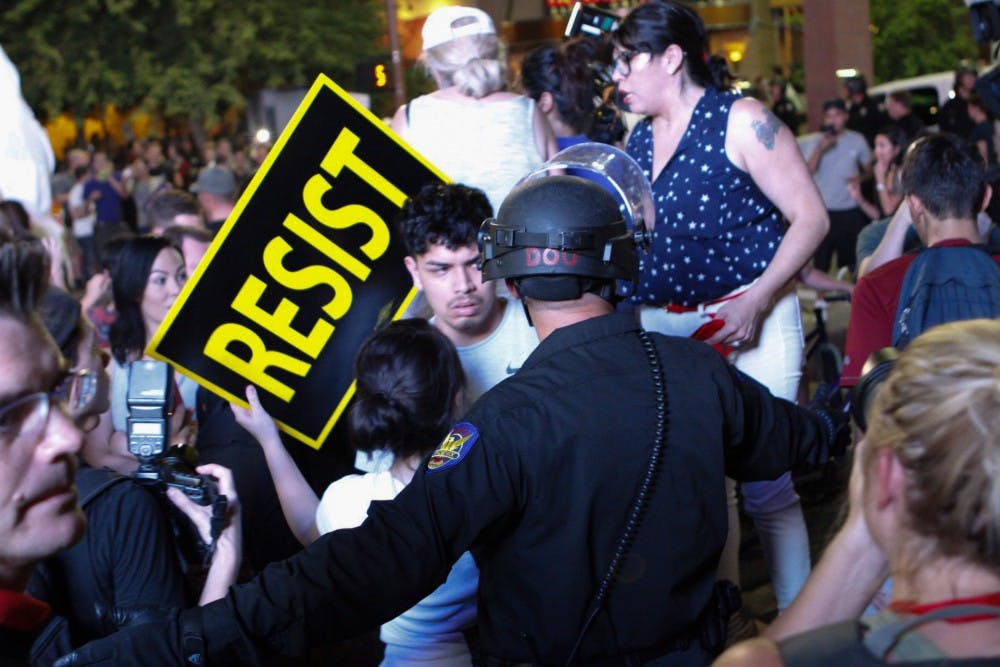Video footage and images from the demonstration back up Gastanaga’s statement, showing how close the two groups were and the limited interaction by police.
This activity, or lack thereof, by police was an injustice and indirectly lead to a person’s death. Regardless of your opinion on the people demonstrating there, it is unacceptable that police would sit back and allow violent crime to take place.
Virginia Gov. Terry McAuliffe later doubled down in defending the actions of his law enforcement officers by attempting to lay blame on the ACLU for defending people’s right to protest.
So, how does this connect to what happened in Downtown Phoenix on Tuesday?
“Anytime there is an under-response to an event like that, the worry is that the pendulum will swing in the opposite direction and that subsequent events will be met by an over-response," Edward Maguire, professor in the ASU School of Criminology and Criminal Justice, said.
"That is what happened in Phoenix with the premature decision to release chemical agents against a mostly peaceful crowd.”
This is hardly a reassuring statement, as there seems to be a lack of national backlash against the PPD’s actions.
Furthermore, Phoenix Police Chief Jeri Williams does not believe there to be any problems with her officers' actions. This means that as more protests occur, police will likely err on the side of excessive force over perilous inaction.
This is not good news for citizens' rights to free speech, as we are probably going to see police using excessive force to move people off the streets and city governments refusing to give permits for any sort of political demonstration.
Governments need to know their boundaries when it comes to dealing with citizens. Police take an oath to uphold the Constitution as well as to protect their communities.
A balance needs to found on how to allow the people to speak their minds while also keeping them safe from those who disagree. The response simply cannot be to stop all public expression just as much as it cannot be to gamble with citizens’ lives.
As one of the more politically active demographics, we as students, should pay close attention to the upcoming protests and the response our government has to them. As Americans, we should never have to fear for our lives whenever we choose to speak.
Reach the columnist at cwitt2@asu.edu.
Editor’s note: The opinions presented in this column are the author’s and do not imply any endorsement from The State Press or its editors.
Want to join the conversation? Send an email to opiniondesk.statepress@gmail.com. Keep letters under 500 words and be sure to include your university affiliation. Anonymity will not be granted.
Like The State Press on Facebook and follow @statepress on Twitter.




